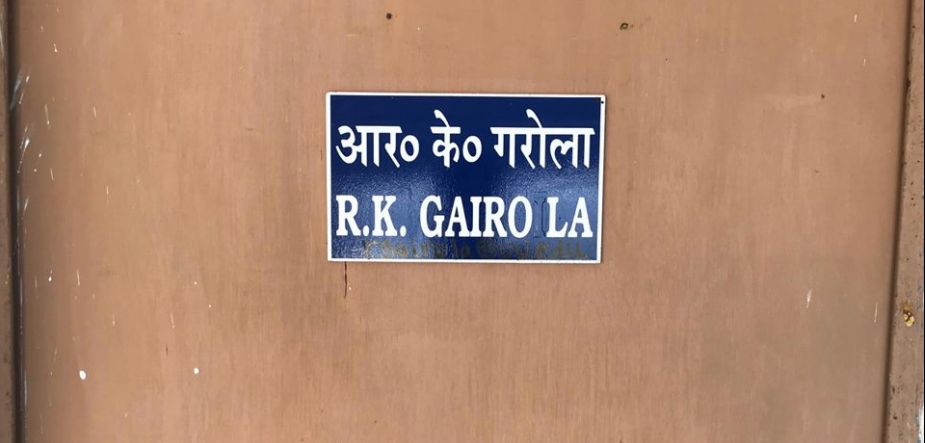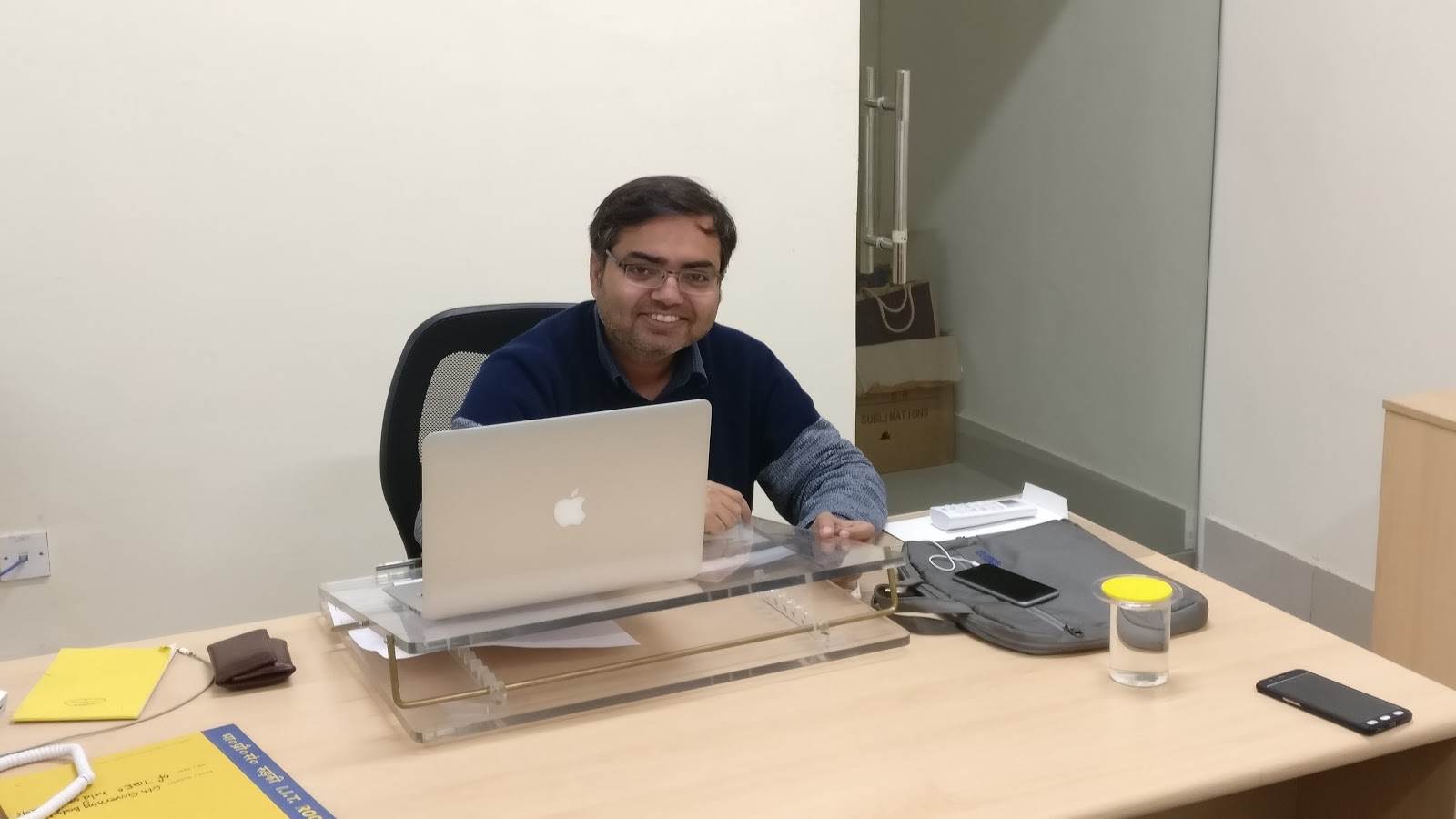

Body of IITR

It’s great to be back here, but I think being on the other side of the table brings with it tonnes of challenges. When I started my journey here in 1998, it was a completely different place. It wasn’t even an IIT; however, by the time I graduated, the transition from UoR to IIT was in full swing.
A plethora of things have changed; a plethora have not. I reckon we used to have much deeper interaction with seniors, back then. Probably the hostels’ condition and infrastructure has changed for better. In our case, they weren’t particularly apt for survival! Jokes apart, I think a lot of things have changed in regards to students and their perspective about college. Students have become far more ambitious and zealous. However, still, when I compare Roorkee with other major institutions, I think Roorkee is still lacking in growing out of its self-imposed shackles. I don’t get the “we’re still not a full fledged IIT” mindset and other sorts of frequent comments. These thoughts merely stop us from unleashing our full potential. Case in point, we had calls from IIMs, for the first time, in 2000 - one from Ahmedabad and two from Calcutta - but once we broke that glass ceiling, we started getting multiple calls from thereon. So, probably, all that was necessary was to let go of the self designed limitations and create some awareness.
Thus, things have changed a lot over the last 15 years. I was surprised that this is the same Roorkee I left in 2002; however, if the change leads to progress, it is definitely welcome. For example, about the startup revolution, this is something which was lacking in Roorkee then. Now, with a place such as TIDES in motion, we can cater to and promote a lot more entrepreneurs and entrepreneurship enthusiasts. This will end up generating employment in and out of R.
I think taboo would be tad harsh a word; but, definitely, there is a limitation, and it is put by the society at large. Students, being at the receiving end of it, have just been following the unsaid laws. Parents uphold apprehensions and have a hard time accepting entrepreneurship as a way of life. Entrepreneurship is usually considered as akin to “Shylockism”, which is not at all the case You are convincing people to buy your products; not forcing them - it takes actual skills and efforts, and, alas, should be given its much deserved accreditation. However, I believe, with initiatives like “Startup India”, this limitation is bound to change; and, more so, is something that has to change. Also, if we do not pass the message from the top-most branches of the chain, the message that students can - and should - take up their innovations and ideas as tangible career choices, not a lot will happen. While working for Scandinavian countries, which are known for Innovation and Entrepreneurship, I saw some important traits. The difference, as I am very vividly witnessing, is that they embrace failures, rather than brush them under the carpet. This culture is missing in general in India and more so in Roorkee, I think. Coming back to your question of startups being a “taboo”, I must admit that most of my interactions have been with people who said that they couldn’t get a job, and, thus, opted to start-up. This mindset is totally a put-down for me. Believe me, getting a job is far, far easier than doing a startup. We really need to appreciate people who are taking a plunge into entrepreneurships. This appreciation should come from both - the society and the management of the institute - who should promote entrepreneurship as a leading activity. We need to ensure that students understand, “if you fail early, you learn early”.
To be very frank, in those days, there was no entrepreneurial culture. We used to think about jobs and companies’ schedule, only. From day 1, we were acquainted with the fact that we, the Chemical and Metallurgy folks, are not going to get a job in core; of course, because of minimal “core” companies showing up for placements. So, everybody was programming in C, C++, Java.
Yeah. Unfortunately, may be we haven’t changed this culture in 20 years now. Probably, even the books you are reading today would be the same as we had. I mean, the world has gone leaps and bounds. If we are not making you employment ready, we are not making you entrepreneurship ready. These go hand-in-hand.If we are not teaching you Machine Learning, AI, and all the latest technology - believe it or not - you are not ready for the world.
So, we do have a long way to go. I still see students from circuital branches refraining from entrepreneurship as a career, for, probably, they are acquainted with the fact that they have a better chance at scoring a placement offer. It’s the non-circuital branches’ students who indulge in such ventures, mostly. These trends say lengths about how much needs to be done. The thing is, whenever you think there is a safe option, the urge to succeed dies out. The cultural mindset needs to change and we have the potential to do it. A new mentality of “learning from failures” needs to be promoted.
We get our funding from various government agencies, like Department of Science & Technology (DST), NSTEDB, DEITY, etc. IIT Roorkee has been gracious to support us in our ventures, too. They have provided us with infrastructure and access to all the labs and faculty for mentorship. Frankly, the only reason TIDES is working as an independent entity is because we want to make the process faster for our incubatees and deliver according to their needs. Time is viciously crucial for startups, for they are in a make or break situation. We are also in the process of undergoing tie-ups with a few corporates, so that we can jointly access startups via a co-investment model. Further, a few PSUs are being approached, so that we can have sector focused startups under TIDES.
We have 10 startups, as of now, which are incubated; around 6-7 are in the pre-incubation phase; and 10-12, which we still need to access. They are from a variety of sectors - from IoT to FinTech. Fintech is a sector which has been explored a lot over the years, and, thus, you have to come up with a really innovative product/service to be incubated anywhere. We are trying to come up with more sector specific startups, too. We have been in talks with a few PSUs for a startup on smart construction activities, for we have a strong civil department. Venturing into biotech is also on the cards.
We have startups which are mainly product based, as of yet. We have been promoting B2B startups, recently. Students are easily swayed by B2C, app-based startups; however, that model has gotten quite obsolete in terms of innovation. Thus, we promote B2B startups, all the while welcoming B2C startups too. We have the tinkering lab now in the same premises and are coming up with an IoT lab.
An ideal location is highly relative and people really need to understand this. A location might be ideal for one startup, whilst not at all ideal for another.
For an agritech or pharmaceutical startup, Roorkee is a highly apt location; same goes for a biotech startup. However, if we talk about an FMCG startup, Roorkee might not be an ideal location. So, it sorta depends.
I accept that we struggle a bit because of transportation and the unavailability of a nearby airport, though. Even the government agencies and corporates we approach, they have to travel from Delhi to Roorkee; the nearest airport is in Dehradun, which, again, is 2-3 hours from here. This is one of the reasons why we are planning to open an extension arm in Greater Noida. It will be a feed for this center at Roorkee and gives us a uniqueness amongst IITs too, for we will have presence in 3 cities after Roorkee and Saharanpur.
If you want to improve student employability, I believe we must make it easy for the industries so that they don’t have to spend on training fresh recruits. I think summer and winter internships are helping to support this model well, but it has to be more interesting to the students and industries alike. Like, a crazy, yet sane, idea would be to rope in some well known corporates and teach their actual manuals to some specific machines. Industries, thereby, will recruit with a mindset that these students are already well acquainted with our products, machines, and designs, and, thus, almost good-to-go.

Oh, they have been extremely accessible. I can talk to the Director whenever I want to; all the Deans respond on mail, too. Accessibility is not an issue, at all. We have a lot of support and resources.
However, TIDES cannot function in a silo. Things need to work in tandem. It is the joint responsibility of TIDES and the institute management to create an ecosystem supporting entrepreneurial ventures for students.
I reckon a curriculum centered around entrepreneurship will help loads. Innovative thinking needs to be promoted, only then entrepreneurship will become sustainable. As per my knowledge, there is no dedicated place to guide the students about the design part of product development, etc. To run a company, an overall understanding needs to be inculcated. TIDES rests at the end of this pipeline; wherein, when a person is ready with an idea, we provide him/her the platform and mentorship for getting to the consumers.
I also believe that administration - especially, faculty - should look into the humongous communication gap amongst B.Tech, M.Tech., and Ph.D. students. Whilst B.Tech. students are full of energy and creativity, PhDs have actual experience with technology. Marry these two together, and you shall have fantastic startups in the campus. And only the faculty can do that, for they are the bridge. Alas, I reckon TIDES, indeed, is a synergistic initiative - both, for the management as well as the students.
We want to make TIDES one of the top 5 incubators in India, and, in this regard, we need to go very fast. We are looking for great startups from across the country, and are intent on providing a nurturing ground to the incubatees - where they can cultivate their ideas and think/target globally. Hopefully, in the time span of 3-4 years, we can have 10-15 good startups. One must understand that getting a couple of good startups from a bunch of 50-100 is an achievement of highest orders.